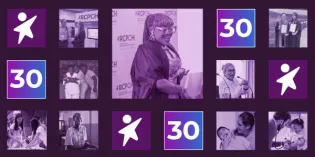Working with members across the UK, the Climate Change Member Reference Group advises on climate-related health challenges and leads initiatives to protect future generations.
A member-submitted motion was passed at the 2020 climate AGM, following which RCPCH declared a climate and ecological emergency and formed the Climate Change Working Group.
This work is now embedded into business-as-usual health policy work for the College and the Climate Change Member Reference Group, which:
- Shapes the continued RCPCH response to the climate emergency
- Provides expert opinion to the College on matters relating to the impacts of climate change on child health and actions to take forward
- Delivers the climate change eBulletin.
Committee Chair (Officer for Climate Change): Dr Helena Clements
Contact: If you would like to get involved or find out more about the member reference group’s work, please contact health.policy@rcpch.ac.uk.







